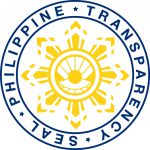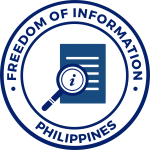Volunteerism
RA 9418 or The Volunteer Act of 2007, defines volunteerism as an act involving a wide range of activities, including traditional forms of mutual aid and developmental interventions that provide an enabling and empowering environment both on the part of the beneficiary receiving, and the volunteer rendering the act, undertaken for reasons arising from socio-developmental, business or corporate orientation, commitment, or conviction for the attainment of the public good and where monetary and other incentives or rewards are not the primary motivating factors.
The three basic principles of volunteerism are as follows:
- Not primarily motivated by any financial gain;
- Concept of free will, no coercion and not forced; and
- Service both benefits the volunteer and the community.
The Republic Act 9418 or the Volunteer Act of 2007 mandates the Philippine National Volunteer Service Coordinating Agency (PNVSCA) to coordinate the National Volunteer Service Program (NVSP). As a strategy for development, the volunteer deployment framework is aligned with the priorities in the current Philippine Development Plan.
By virtue of Republic Act 9418 or the Volunteer Act of 2007, the Bayanihang Bayan Program (BBP) or Volunteer Program for Government Service is a platform for private sector volunteering in government agencies and local government units. The law mandates that “National government agencies and local government units shall establish volunteer programs in their respective offices to promote and encourage volunteering in government programs and projects as well as enjoin government employees to render volunteer service in social, economic and humanitarian development undertakings in the community” (RA 9418, Section 12c).
BBP engages the volunteer assistance of the private sector in the implementation of government programs and projects for stronger partnership between and among the stakeholders. It was formulated through consultations with representatives of government agencies, NGOs, the business sector and the academe who believe in the power of volunteerism as an instrument in propelling national development in all fronts.
The Department of the Interior and Local Government (DILG) issued the Memorandum Circular 2013-27 in support of the volunteering efforts of government and non-government sectors in the country. Through the Volunteer and Citizenship Program (VCP), LGUs shall set up a Volunteer and Citizenship Desk and shall establish a volunteer database management and conduct capacity building and information and education campaigns on volunteerism. Other laws and policies have been passed, notably the Republic Act 10121 or the Philippine Disaster Risk Reduction and Management Act of 2010 which mandates the Local Government Units (LGU) to organize a corps of volunteers for disaster response.
The Civil Service Commission (CSC) issued Memorandum Circular No. 23, s. 2012 on 4 December 2012 enjoining government agencies to establish and implement volunteer programs to promote the value of volunteerism in the public sector. The Circular is also in line with Republic Act 9418 calling for the establishment of a volunteer program in national government agencies, as well as encouraging government employees to volunteer in social, economic, and humanitarian development undertakings in the community.
PNVSCA
The Philippine National Volunteer Service Coordinating Agency (PNVSCA) is the government agency mandated to promote and coordinate volunteer programs and services throughout the country. It is an attached agency of the National Economic and Development Authority (NEDA).
PNVSCA functions include policy review and formulation on volunteerism; coordination, monitoring and evaluation of the national volunteer service program; act as a clearinghouse for international volunteer service-for international volunteers who will be deployed in the Philippines, as well as Filipinos who will render volunteer services overseas; development of volunteering models; provision of technical services; and advocacy and networking.
PNVSCA does not implement volunteer programs directly but rather coordinates and monitors volunteer programs and services throughout the country.
HOW TO VOLUNTEER?
The typical notion is we volunteer during times of disasters and calamities. In reality, volunteering is a day-to-day vocation, and there are a lot of opportunities where we can volunteer.
There are various forms of volunteering, such as Mutual Aid or Self-help, Philanthropy or Service to Others, Participation or Civic Engagement, and Advocacy or Campaigning. In volunteering, there is no big or small contribution; every volunteer effort is measured by the goodwill that comes from the heart. Volunteering is priceless!
You may sign up in our Be a Volunteer Platform
https://www.pnvsca.gov.ph/be_a_volunteer/ and we’ll email you once there is an available volunteer opportunity in one of our partner organizations.
Filipinos can volunteer through the Bayanihang Bayan Program (BBP)--a platform for private sector volunteering in government agencies and local government units by virtue of Republic Act 9418 or the Volunteer Act of 2007 and through the Volunteer Program in the Public Sector as stated in the RA9418, Sec. 12c. They may also contact any local volunteer organization or PNVSCA for a referral.
PNVSCA is undertaking registration of volunteer organizations toward establishing a registry and national network that will promote and enhance professionalism, facilitation, and recognition for volunteer service organizations and workers. Foreign volunteer organizations must register and coordinate the implementation of their volunteer programs in the Philippines with PNVSCA. You may send your inquiries to
[email protected].
An agency/organization may avail of the services of a foreign/international volunteer by submitting a Request for Volunteer to PNVSCA. Please click this
link to download the form and kindly send request to
[email protected].
The volunteer role depends on the need of the host or partner organization where you will volunteer. For local volunteering, please check out the organizations you wish to volunteer in, and for international volunteering, check the roles and information on volunteering thru this link:
https://bit.ly/IntlVolunteerService.
A number of volunteer-engaging organizations are available online. Please make sure that the organization is legit. PNVSCA is currently establishing the database of volunteer-involving organizations in partnership with PhilCV. Alternatively, you may register through this link
https://www.pnvsca.gov.ph/be_a_volunteer/.
Yes, PNVSCA accepts interns/OJT. Kindly write us a formal letter addressed to the Executive Director regarding your request.
INTERNATIONAL VOLUNTEERING
If the volunteer was sent overseas by a PNVSCA-registered volunteer organization such as France Volontaires (FV), Global Initiative for Exchange and Development Inc. (GIED), Voluntary Service Overseas (VSO) and United Nations Volunteers (UNV), PNVSCA may provide the Certificate; otherwise PNVSCA cannot provide it.
A foreign national should be a member or recruited by a foreign volunteer organization registered with PNVSCA. He/she should possess the qualities and skills needed by the project requesting volunteer assistance.
Downloadable file:
Frequently Asked Questions




